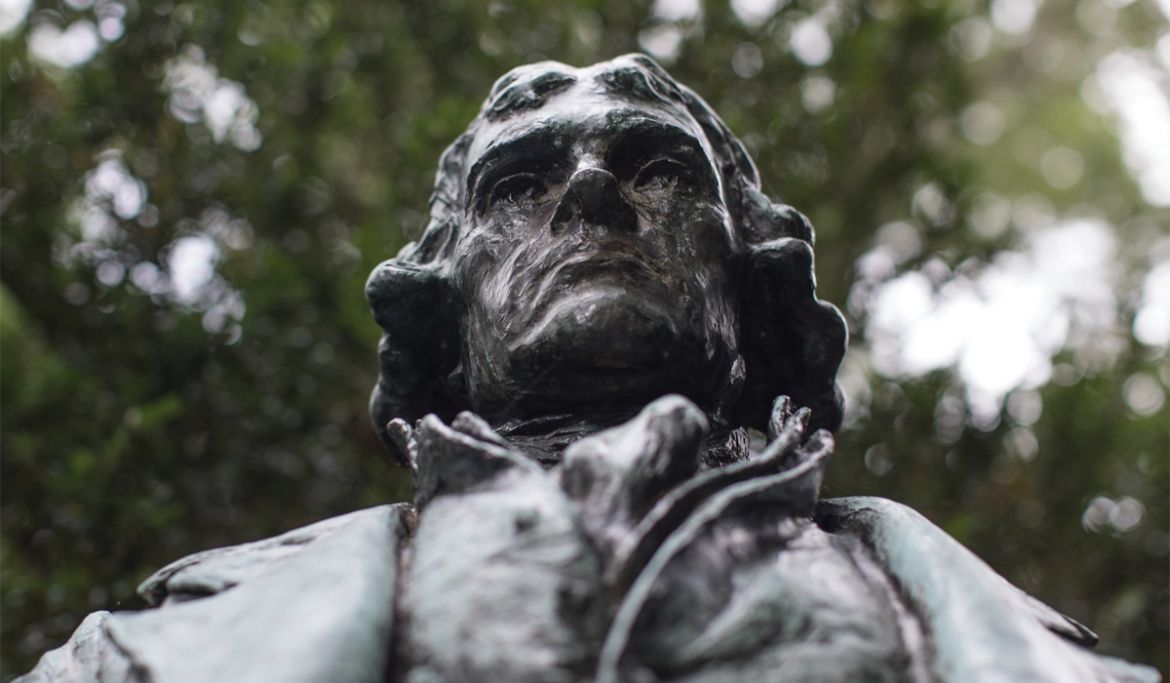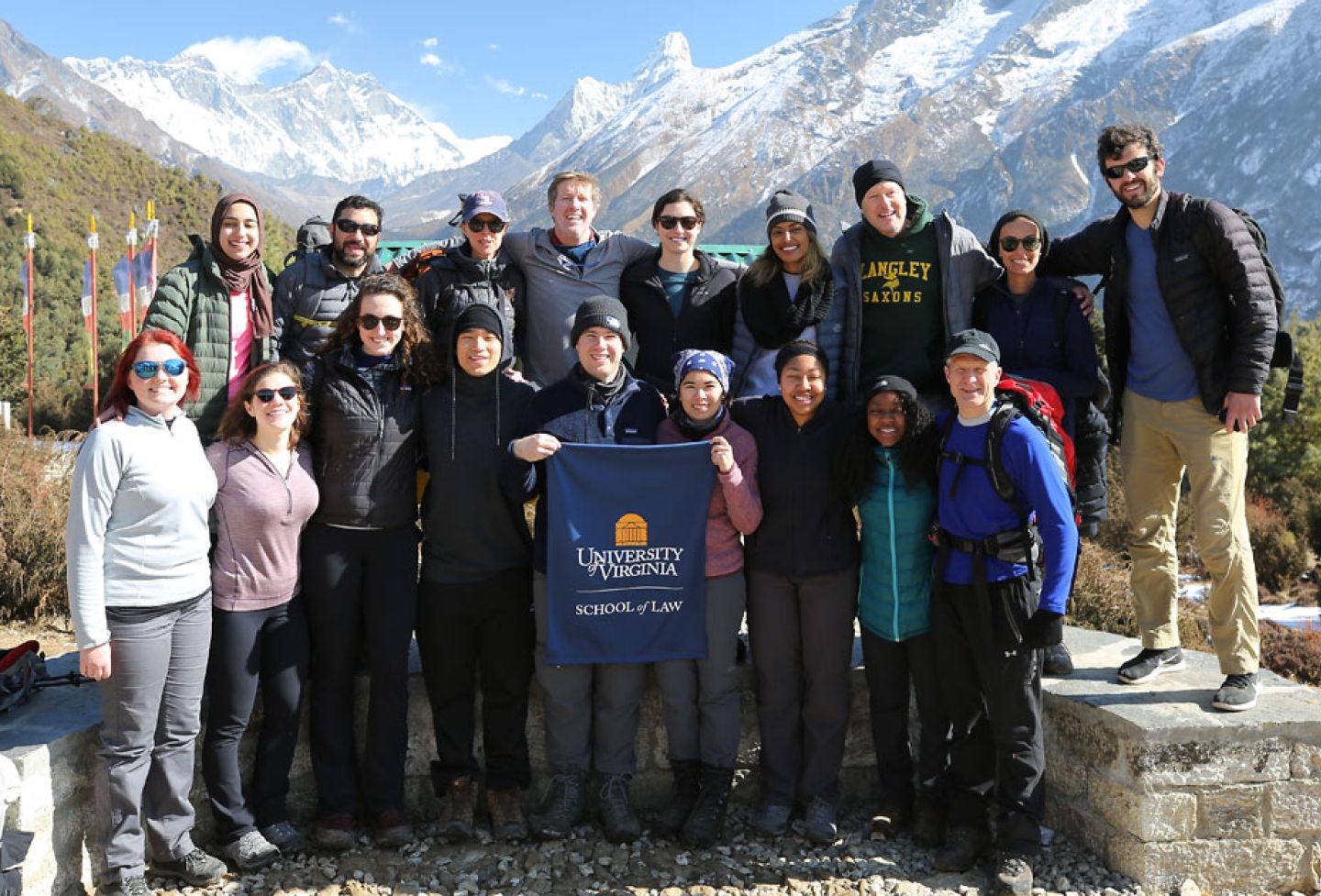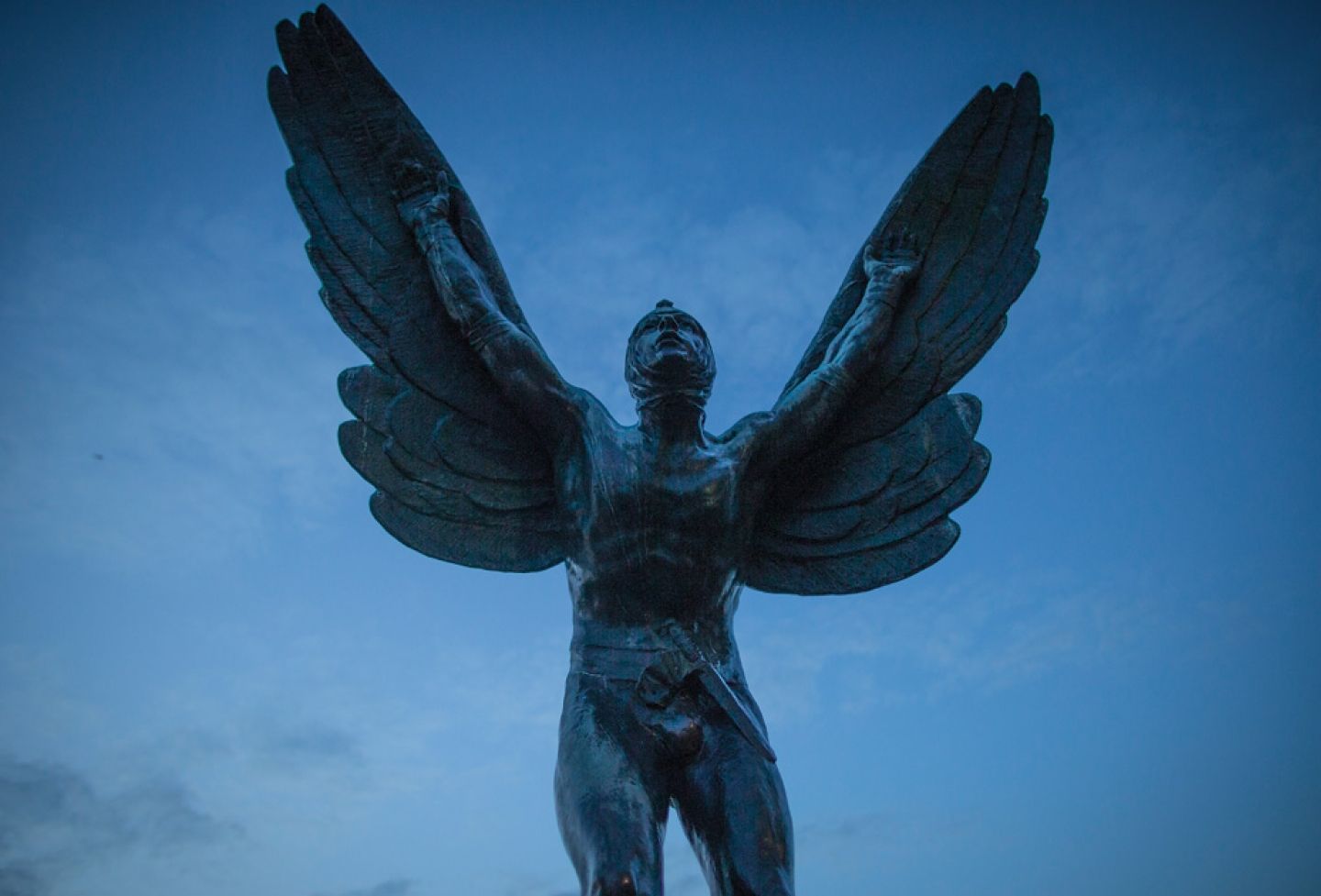In honor of our 200th anniversary, UVA Lawyer has been contemplating the innumerable ways our accomplished alumni have made an impact, and how to honor them.
It wasn’t easy, but we have chosen for this special issue to recognize 100 alumni — five in each of 20 categories — that we’ve dubbed “change agents.”
We hope that the list, rather than being viewed as exhaustive, starts a discussion about what it means to be a “UVA lawyer” as we reflect on the Law School’s bicentennial and embark on the school’s third century.
We’ll continue to share more stories of how UVA lawyers are making a difference in coming issues and online.

<p><em>Photo by Sanjay Suchak/UVA Communications</em></p>
It Started With Jefferson’s Vision
Thomas Jefferson was in a quandary when it came to prescribing a legal education for the holistic, liberal arts university he envisioned — the ambitious project that he had been methodically planning for decades, which was finally chartered on Jan. 25, 1819, and which engulfed the final years of his life.
The chairs of the other educational departments would necessarily come from Europe; that was a given. But the law department, by its nature, would have to be different. The nation was developing new legal approaches, divergent from their European origin.
To help steer things, Jefferson chose the books for the Law Library and created an outline for his vision: Constitutional law, international law, political theory and political economy should constitute at least half of the law course of study.
He also consulted his friend James Madison, as he did on many aspects of the University’s creation, who agreed that the law chair should be an American, but urged against a rigidly prescribed curriculum.
The chair went to Virginian John Tayloe Lomax, a friend of Madison’s, in 1825.
Jefferson died on July 4, 1826, not long after the Law Department was fully up and running.
Although Lomax was later chastised by the Board of Visitors for deviating from Jefferson’s vision of teaching law as a liberal art, in the end Lomax’s approach was integrated into the curriculum. By the mid-1840s, law and legal practice skills were part of the program.
The law school Jefferson created would go on to educate a future president and vice president — along with U.S. senators and representatives, governors, other state and federal officials, diplomats and judges at every level. Not to mention countless distinguished private practitioners and academics.
At its founding, the Law School was a place for white men from mostly privileged families to study law for a year. The school evolved with society, admitting the first women in 1920, and the first black student in 1950, when UVA became among the first Southern schools to desegregate with the enrollment of LL.M. student Gregory Swanson ’51.
The school has grown more diverse demographically, geographically and politically as it has trained subsequent generations of graduates to lead.
Jefferson’s troubling legacy as a slaveholder gives the University and Law School an additional reason to investigate and reflect upon the past this bicentennial year — a process that is ongoing.
Jefferson dictated the language for his own tombstone. He wanted to be remembered for three things: authoring the Declaration of Independence and the Virginia Statute of Religious Freedom, and being the “father” of the University of Virginia.
Famously, his service as president of the United States goes unmentioned in his epitaph.
100 Change Agents
- 5 Who Fought for Rights
- 5 in Criminal Law, 5 in Government Service
- 5 in International Law, 5 Military Leaders
- 5 Virginia Voices
- 5 Business Leaders, 5 General Counsel, 5 in Investing, 5 in Law Firms
- 5 Nonprofit Leaders, 5 Educational Leaders
- 5 Who Were There To Make a Difference
- 5 Best-Selling Authors
- 5 in Sports, 5 in Entertainment
- 5 in a League of Their Own
- 5 From the Early Days, 5 Firsts
- 5 Who Changed UVA



